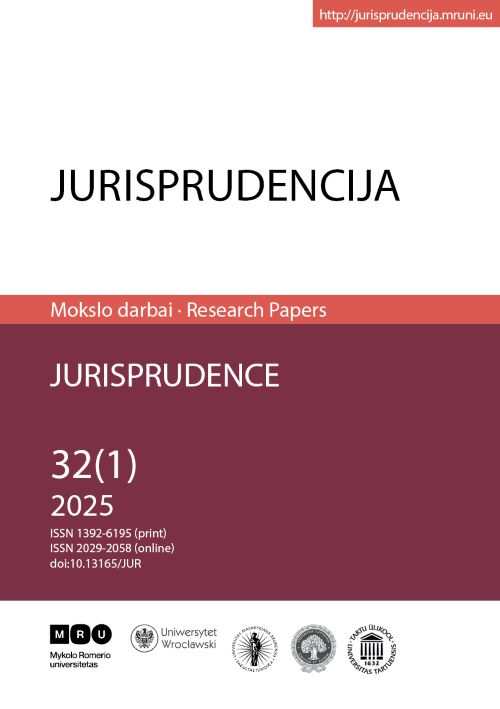DAUGIAKALBYSTĖS PRINCIPAS ES BAUDŽIAMOJOJE TEISĖJE: TEORINIAI IR PRAKTINIAI ASPEKTAI
plugins.themes.bootstrap3.article.main6980df7e0f84f
Santrauka
Straipsnyje analizuojama daugiakalbystės principo reikšmė Europos Sąjungos baudžiamojoje teisėje, atskleidžiant šio principo sampratą, turinį ir iššūkius, kylančius siekiant užtikrinti 24 Sąjungos oficialiųjų kalbų lygiavertiškumą. Pripažįstant, kad dėl Europos Sąjungos valstybių narių teisinių sistemų skirtumų ir lingvistinių ypatumų ES direktyvose ir reglamentuose vartojamoms sąvokoms ne visada galima rasti identiškus nacionalinius atitikmenis, kyla iššūkių siekiant užtikrinti vienodą Sąjungos teisės aiškinimą. Nagrinėjant atvejus, kai atsisakoma pažodinio teisės aiškinimo, pirmenybę teikiant ES įstatymų leidėjo tikslams, o ne įprastai žodžių prasmei, atskleidžiama daugiakalbystės ir teisinio tikrumo problema, ypač jautri baudžiamosios teisės srityje, reikalaujančioje aiškių elgesio taisyklių, leidžiančių numatyti galimas elgesio pasekmes.
Reikšminiai žodžiai: daugiakalbystė, teisinis tikrumas, pareiga vienodai aiškinti Sąjungos teisę, nusikalstamos veikos apibrėžtis.
plugins.themes.bootstrap3.article.details6980df7e1330a

Šis kūrinys yra platinamas pagal Kūrybinių bendrijų Priskyrimas 4.0 tarptautinę licenciją.
Šiam žurnalui suteikta Creative Commons Priskyrimas - CC BY 4.0 licencija (taikoma nuo 2025 m.).







